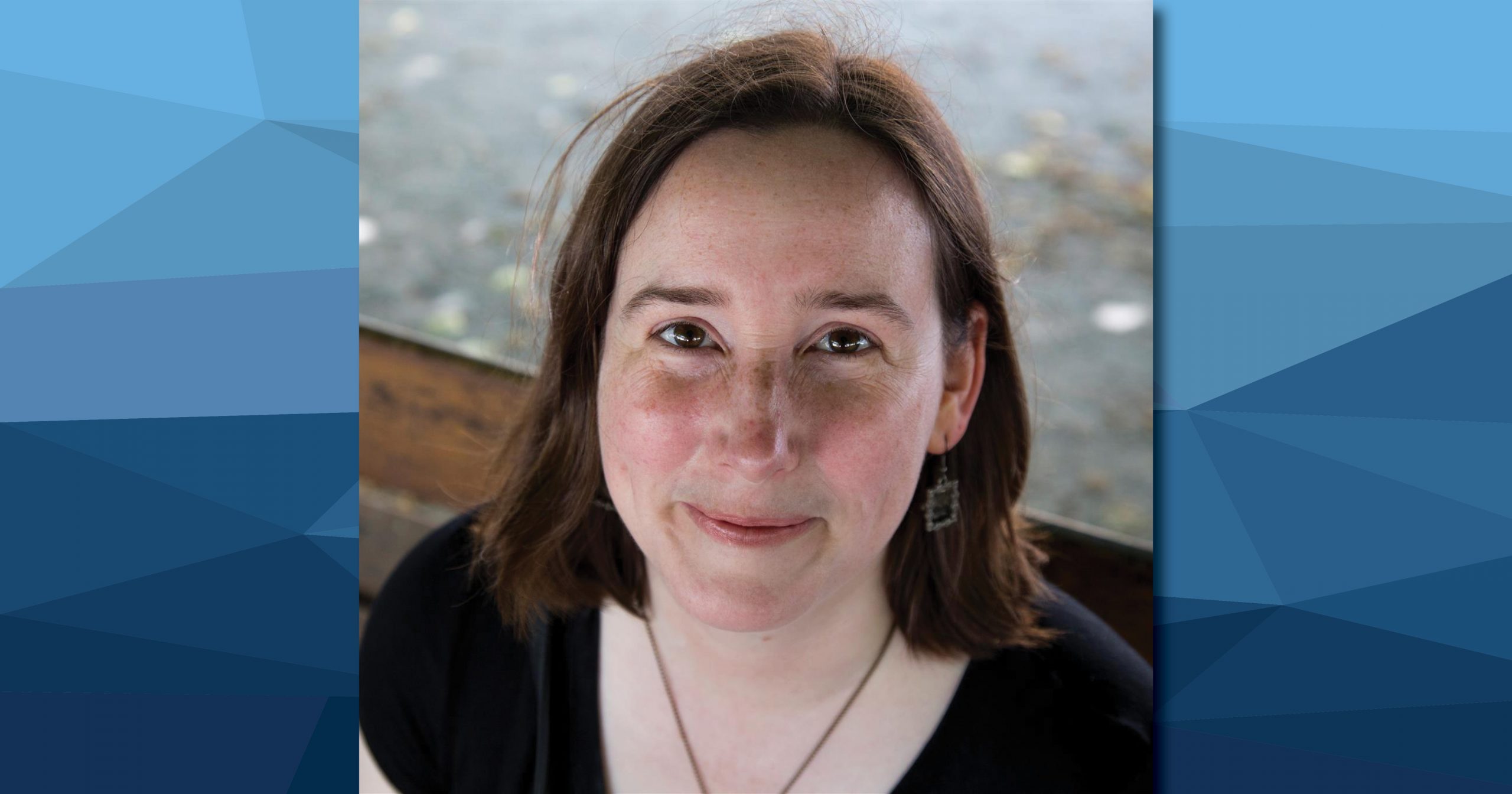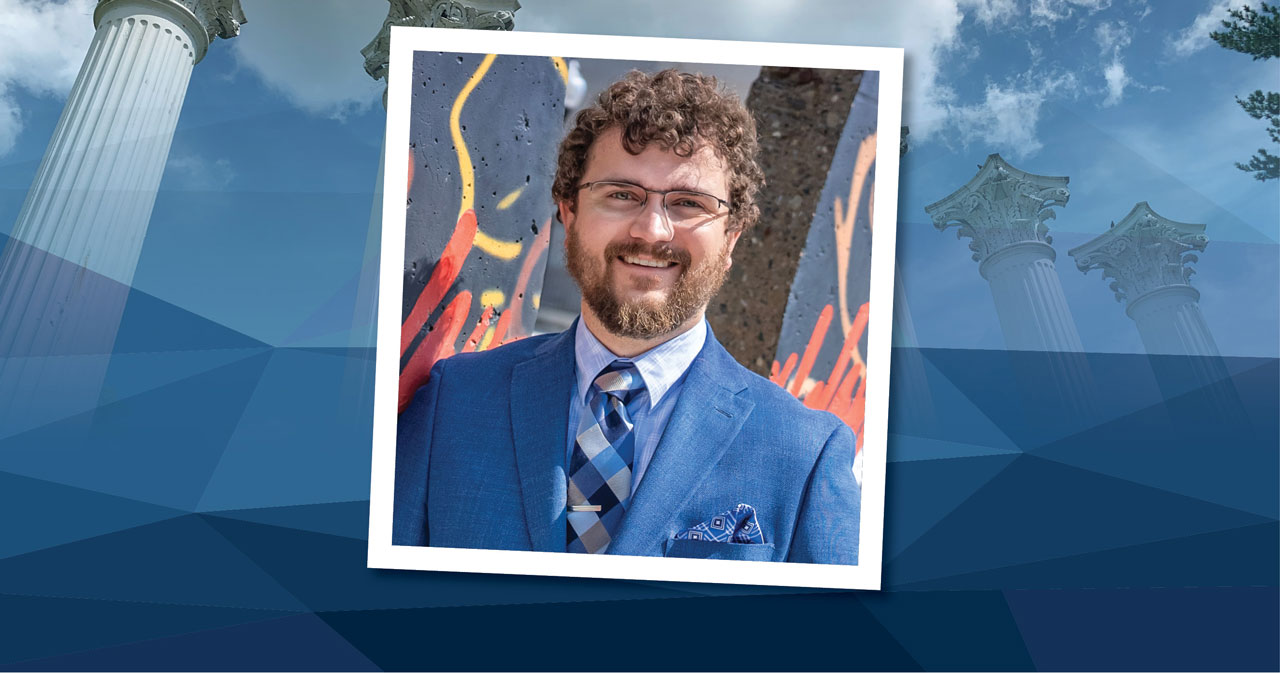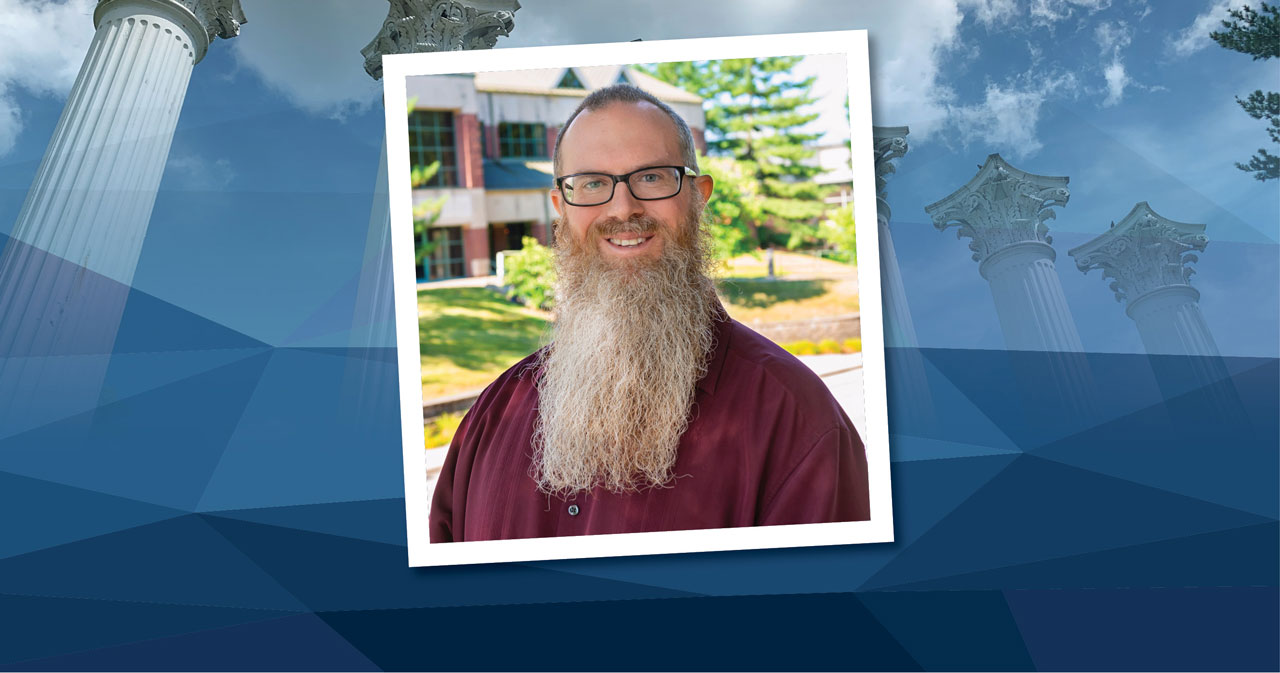Dr. Heidi LaVine says she was “gobsmacked” after learning she was the recipient of the President’s Award for Excellence in Teaching last fall.
The associate professor of English was just as surprised to receive the Patricia Klein Liebling Parents’ Association Faculty Award during commencement on May 14, 2022.
LaVine’s reactions come from a place of deep humility as well as an intense focus on two great loves at Westminster College in Fulton, MO: literature and her students.
Read further to learn how the self-described voracious reader who grew up in in a small Oregon town would join Westminster’s faculty in 2009 and go on to found the College’s Honors Program a year later and become a favorite among students and faculty alike.
How do you feel about receiving not one but two teaching awards in the same year?
I am extremely grateful for all the students, colleagues, and mentors who make this job so rich and full. Teaching is a team sport, and I benefit every day from conversations and book exchanges with Theresa Adams, Kali Wright-Smith, Carolyn Perry, Nate Leonard, and Jeremy Reed; from long walks and conversations with Therese Miller and Mary Majerus; from articles shared by Tobias Gibson, Dawn Holiday, Abby Coats, Mark Boulton, and David Jones; and from all of the laughter, good-natured critiques, and friendly debating that students contribute to class discussions.
How did you become interested in English literature?
I grew up in Ashland, OR, home of the Oregon Shakespeare Festival and a host of small, quirky bookstores. Shakespeare and Agatha Christie were my steady childhood diet, and I went to grad school intending to specialize in Renaissance/Early Modern literature. Out of curiosity, I signed up for a Caribbean literature class, and couldn’t get over the fact that, despite 25 years of voracious reading, I’d never encountered any of the writers on the syllabus. That class changed my entire academic trajectory, and I chose to study the literature, cultures, and histories of that region (and, more importantly, to share it with as many people as I could).
Where did you earn your degrees?
I fell in love with the small, midwestern, liberal arts college environment as an undergraduate at St. Olaf College in Northfield, MN, and went on to earn a master’s and PhD from the University of Iowa in Iowa City.
What do you enjoy most about teaching at Westminster?
The greatest joy of my professional life is working with the students in our Honors Program. They make me proud every day, not only because of their academic and extracurricular accomplishments (which are remarkable), but because they are excellent human beings who use their talents for the benefit of others.
What is your favorite course to teach?
This is like trying to choose a favorite book. I just can’t do it! As a student, my favorite courses were those that introduced me to lesser-known and under-read gems that I would never have known about otherwise, so that’s the experience I try to recreate for Westminster students in Booker Prize-Winning Fiction, African Diasporic Literature, Literary Remixes, and Caribbean Literature.
What is the most important piece of advice you would give students?
Use your general education requirements as a chance to take a class that sounds intriguing or even slightly scary rather than strictly practical. Spend some time learning about dinosaur excavation in a paleontology class, learn what’s in the storerooms of the Churchill Museum in a Museum Studies course, or try your hand at debating in Model UN. You’ll be making progress toward graduation, and you might just pick up a new major or minor along the way.
What do you tell students who struggle with writing or say they don’t like to read?
I encourage students to take skills that make them successful in other areas (sports, science, playing video games, etc.) and apply them to their reading and writing assignments. A good athlete analyzes her opponent’s strengths and weaknesses before the game and plans a strategy accordingly; a good persuasive writer does exactly the same thing, rhetorically.
What do you enjoy doing in your free time?
I read like a maniac, am an enthusiastic but middling cook, and make a break for a camping spot in the woods whenever possible.
If you were stranded on a desert island with only a few essentials, what could you not live without?
I’m going to imagine that luck washed me up on a fancy island replete with food and shelter, so I would choose books, a friendly animal companion, and sunscreen.
Sarah Rummel Backer is the Director of Media Relations and Senior Writer at Westminster College in Fulton, Missouri. A proud Westminster graduate, Sarah has more than 20 years of experience in marketing and strategic communications in the areas of higher education, medicine, agriculture, and the private business sector.






